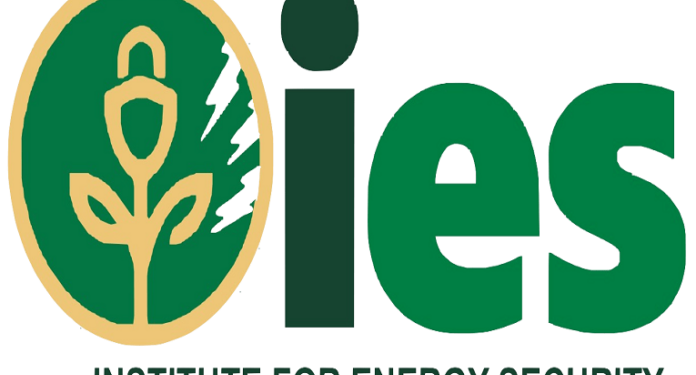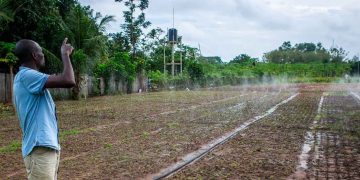Power Generation Deficit Impacting Negatively on Domestic Supply and Exports – IES
An analysis of Ghana’s power generation data from 1st September 2024 to 27th October 2024 by the Institute for Energy Security (IES) reveal significant and consistent shortfalls in meeting daily system peak demand, impacting both domestic energy stability and electricity export potential to neighbouring countries, and forcing power imports from La Cote d’Ivoire to augment shortfalls in domestic power generation.
Generation versus demand alignment
Across the dataset, daily power generation regularly falls below the system peak demand of roughly 3700 megawatts (MW), with generation averaging around 3000 MW and thus missing the target by approximately 700 MW daily.
This persistent shortfall suggests underlying issues, potentially rooted in generation capacity limitations, resource constraints, or operational policies that prioritize certain efficiency thresholds. Such shortfalls mean that Ghana faces daily challenges in fulfilling its total energy requirements, which had led to practices such as load shedding or the prioritization of essential services over broader access.

Patterns and anomalies in demand satisfaction
The dataset consistently shows that generation remains below demand without any instances of excess power generation. While rare, certain days (like October 7, 2024) do show generation levels approaching peak demand, indicating that Ghana’s power infrastructure may have the potential for marginal increases under specific conditions.
However, these instances are sporadic and highlight the lack of significant flexibility in the current power generation framework. This pattern points to the country’s inability to convert a significant dependable capacity (close to 5,000 MW) to actual generation capacity due to forced plant shutdowns, fuel supply constraints, and debt issues et cetera, thus limiting the performance of existing infrastructures.
Magnitude and frequency of shortfalls
The frequency and magnitude of generation falling short of peak demand are striking. The system fails to meet demand every day in the dataset, with shortfalls generally ranging from 700 to 1000 MW. Such a recurring gap suggests structural challenges in Ghana’s electricity generation capacity.
This continued discrepancy impacts the country’s ability to sustain reliable electricity exports, as limited domestic supply necessitates the re-allocation of resources meant for export to satisfy local demand.

Fluctuations in power generation
While Ghana’s power generation shows some day-to-day fluctuations, they remain within a relatively narrow band (2700 to 3200 MW). The narrow range of these fluctuations implies a stable, albeit limited, generation framework that lacks the flexibility to rapidly scale production up or down based on daily demand variations.
This stability, while avoiding extreme volatility, indicates constraints in the system’s ability to dynamically respond to shifts in both peak demand and export opportunities, which hampers operational efficiency and responsiveness.
Impact on exports to neighbouring countries
The relationship between power generation levels and export quantities underscores the limitations in Ghana’s ability to reliably serve external markets such as Togo, Burkina Faso, Benin, and La Cote d’Ivoire. Exports generally fluctuate between 100 and 400 MW and seem positively correlated with days when generation is closer to peak demand. However, the shortfalls in meeting domestic demand necessitate prioritizing local consumption, often resulting in reduced export volumes.
This trend suggests that while exports are still maintained, they are subject to reductions to stabilize Ghana’s internal electricity needs. The data shows a gradually declining trend in exports to the neighbouring countries over the period analyzed. The frequent adjustments to export levels may affect Ghana’s trade relations with neighbouring countries, as the inconsistency could influence these partners’ energy security and planning.

Forced imports
Detail of power exports to the neighbouring countries over the period analysed shows an interesting pattern at a certain point. Between 12th and 17th September 2024 power exports to CIE of La Cote d’Ivoire were curtailed, while exports to Togo-Benin (CEB), and Burkina Faso (SONABEL) were reduced drastically; to accommodate reduced power generation. Between 18th
September 2024 and 7th October 2024 a total of 1,605 MW of power were forced to be imported from La Cote d’Ivoire (CIE) particularly during the day, contrary to the norm, to augment Ghana’s growing electricity demand within the period.
Summary and implications
Ghana’s current power generation profile indicates a consistent inability to meet daily peak demand, limiting both domestic electricity supply reliability and export stability. The data points to a need for strategic adjustments to either expand generation capacity, fully utilize existing dependable capacity, or implement demand management initiatives to close the gap between generation and demand. Moreover, the limited flexibility in the generation system suggests a necessity for operational enhancements that could enable more dynamic responses to daily demand fluctuations.
Recommendations
To address these issues, Ghana may consider expanding generation capacity through investments in new facilities, upgrades to existing ones, and enhanced utilization of existing dependable capacity to help bridge the demand-supply gap.
Also, the country can be implementing policies to optimize and manage peak demand more effectively, such as through demand response programs to help balance consumption with available resources. To sustain export commitments, Ghana could equally explore bilateral agreements with neighbouring countries that account for supply constraints, ensuring reliability while accommodating domestic needs.
Conclusion
Ghana’s power generation consistently falls short of its peak demand, which is set around 3,700 MW daily. With generation averaging about 3,000 MW, there is a daily shortfall of approximately 700 MW, sometimes reaching up to 1,000 MW. This gap, occurring 100% of the time in the dataset, points to structural issues in scaling up or resource availability for power generation. Due to this sustained shortfall, Ghana faces challenges in meeting domestic demand reliably and fulfilling export commitments, impacting revenue from energy exports.
The generation system shows moderate daily fluctuations, indicating limited flexibility to adapt to demand changes, which restricts the capacity to meet peak demand or seize export opportunities. To prioritize domestic needs, Ghana often reduces export volumes (and import at some point), affecting trade relations and income from exports to neighbouring countries.
The analysis underscores the importance of enhancing the utilization of existing dependable capacity, expanding generation capacity to meet medium-term needs, and adopting flexible operational policies to enhance electricity supply reliability and support Ghana’s role as a regional energy exporter.








